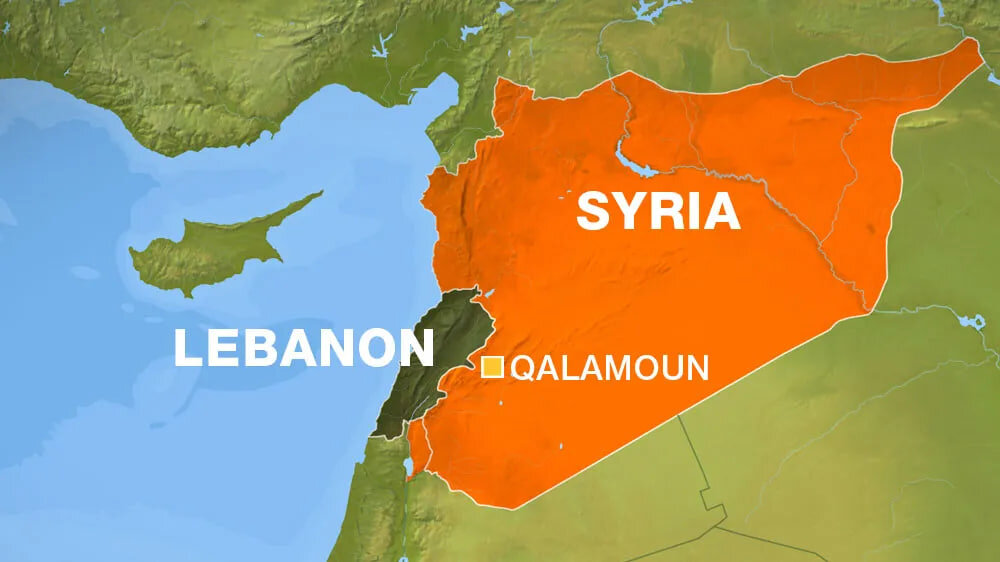Israel intensifies concerns on the Lebanon-Syria border

BEIRUT — Day after day, concerns about potential threats to Lebanon’s eastern borders with Syria are growing. This is due to the failure of security and military meetings between the two countries to end recurring attacks on Lebanese villages by the HTS gangs.
Indeed, the issue is not only limited to these attacks that Damascus attributes to its lack of full control over the borders, but also arms smuggling and continuous flow of Syrians (individuals and not families) through illegal crossings.
While Lebanon has been striving to secure the return of displaced Syrians, the government of al-Jolani (currently known as Ahmed al-Sharaa) has been obstructing their return, citing the difficult economic situation in Syria.
Al-Jolani’s government, however, has shown great interest in closing illegal crossings suspected of being used to transport weapons or funds to Hezbollah!
Lebanon’s concerns about the involvement of Damascus in pressuring Hezbollah increased after U.S. President Donald Trump met with al-Jolani in Riyadh.
While Washington demanded that he deport foreign fighters (foreign militants fighting alongside the Jolani group against the Assad government), al-Jolani has greenlighted to grant them Syrian citizenship after he claimed that they “sacrificed and fought for the Syrian revolution against the former regime.”
Al-Jolani warned Trump that these foreign fighters belonged to countries who refuse to leave Syria or their countries of origin refuse to accept them, and this leaves them stateless. This, he said, would open the way for ISIS to recruit them that would threaten security in Syria and the West alike.
What greatly raised concerns in Lebanon was al-Jolani’s reference to the possibility of using them to confront “common enemies,” i.e. the Axis of Resistance, including Hezbollah, the Popular Mobilization Forces, Yemen and Iran.
Lebanon’s concerns reached a peak after a terrorist attack on the Mar Elias Church in central Damascus, and after the arrest of members of a terrorist cell in Beirut’s southern suburbs linked to ISIS and Mossad.
On Monday, the Lebanese General Security conducted a security raid in the Burj al-Barajneh suburb, resulting in the arrest of a group of seven Syrians divided into: (1) a section affiliated with ISIS and tasked with carrying out specific missions; (2) a section that solely supports ISIS but has no direct organizational affiliation.
Lebanese security services are intensifying their preemptive operations to dismantle terrorist networks. A few days ago, they arrested one of the most dangerous ISIS leaders in Lebanon, nicknamed Qasoura, who admitted during investigations to leading a group operating between Baalbek and the south.
According to security sources, most of these terrorist groups are led outside Lebanon, particularly in Turkey, while others operate within Lebanon on their own initiative.
Meanwhile, the Lebanese General Security announced the provision of additional facilities for Syrians and Palestinians (refugees in Syria) wishing to leave until the end of September, particularly after the political and security situation in Syria improved and there are no reasons for displacement.
Israel’s Channel 12 revealed that their political echelon is very preoccupied with Syria signing the Abraham Accords before the end of this year.
The Hebrew channel suggested a so-called update to the Disengagement Agreement (signed on May 31, 1974) and enhanced intelligence-security coordination against Hezbollah and Iran, allegedly to prevent them from establishing resistance cells in southern Syria.
Accordingly, Syria would relinquish the occupied Golan Heights, and Israel would recognize Lebanon’s Shebaa Farms as Syrian in a joint plot to strip Hezbollah from the legitimate resistance to liberate it.
For his part, Israeli Foreign Minister Gideon Saar claimed that the occupied Syrian Golan Heights “will remain part of the State of Israel,” adding, “We have an interest in including new countries, such as Syria and Lebanon [...] in this circle, while preserving the security and fundamental interests of the State of Israel.”
In Lebanon, talks have yet to yield a final response to U.S. envoy Tom Barrack’s proposal, which not only addresses Israel’s interests but also links all internal issues to the disarmament of Hezbollah within a specific timetable (three months at most).
Barack’s proposal stipulates the surrender of weapons as a prelude to signing an “agreement” under which Israel would withdraw from occupied Lebanese territory. Beforehand, Lebanon must demarcate its borders with Syria.
Reportedly, Barrack hinted that the Trump administration may resort to imposing sanctions on anyone who obstructs the approval of reform or prevents their implementation (this includes isolating Shiites and closing Hezbollah’s banking institution, Al-Qard Al-Hassan).
Barrack also threatened that no Western, Arab, or Islamic country would be willing to provide any kind of financial assistance to Lebanon, and that the reconstruction file would not be possible unless Lebanon committed to these so-called “reforms.”
Leave a Comment